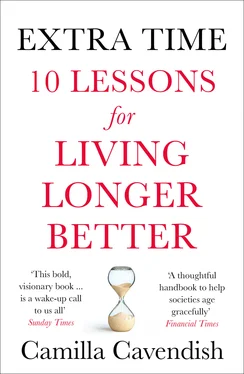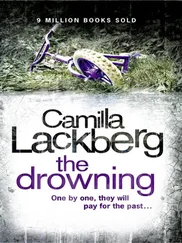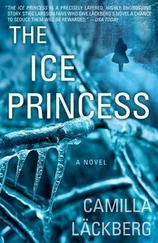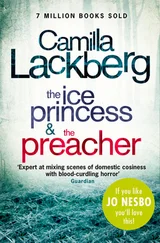I’ve fallen into the same trap myself, by focusing on age when it was irrelevant. When I interviewed Margaret Atwood, bestselling Canadian novelist and author of The Handmaid’s Tale , 18I asked her how she felt about having 1.6 million followers on Twitter at the age of 77. Atwood, who is one of my heroines, shot back sharply: ‘It’s 1.75 million!’ I felt ashamed. She went on to say, ‘A lot of them are robots. You know they are robots when they send you a message saying, “I miss your great big dick”.’ That was her graceful way of telling me to stop being so bloody patronising. What was I thinking?
‘There is a casualness of ageism,’ says Professor Martin Green, CEO of Care England. ‘People say things they would never say if the word “old” was replaced by “gay” or “black”. They say silly old people, shouldn’t be driving. But 19-year-olds are worse drivers than 80-year-olds.’
‘Everybody ghettoises the old,’ says the broadcaster Joan Bakewell. ‘But the old is us.’ Bakewell, 85, is a poster girl for ageing well. She looks fabulous and has lost none of her sharpness. But when she presented the TV programme Life at 100 in 2017, she had to keep challenging the production team for referring to older viewers as ‘they’. ‘There shouldn’t be that distinction,’ she says. ‘We are all in this together.’
Language matters. Baroness Sally Greengross, a formidable campaigner for older people, told me about a friend in her eighties who went to hospital and was admitted to the ‘geriatric’ ward. ‘But I’m not geriatric!’ she protested furiously, as they wheeled her away down the corridor. ‘Take me somewhere else!’
Women are thought to suffer ageism earlier, and more consistently, than men. 19That’s partly because we care more about how women look. The multi-billion-pound cosmetic industry, with its claim to reverse ageing, may be doing more harm than good. Personally, I see nothing wrong with trying to avoid wrinkles. But advertising does feed off the idea that we are in a constant battle against ‘old’. If anti-ageing is becoming synonymous with being anti-old people, we have a problem.
Becca Levy, Associate Professor of Epidemiology and Psychology at the Yale School of Public Health, has found that individuals’ own health is influenced by their perceptions of what ageing is like. Her team followed several hundred Americans over 50 for 20 years, and found that those who held more positive views of ageing lived an astonishing 7.5 years longer than their peers. 20
Negativity is rife. Broadcasters, galleries and museums spend hours worrying about how to reach more youthful audiences – despite the fact that older people have more time and money, and are growing in number. We value youth, tech and energy over wisdom and maturity, or so it seems.
The extreme youth of Silicon Valley plays into all of this. In 2014, the median age of Facebook employees was 29; at Amazon and Google it was 30. Facebook founder Mark Zuckerberg famously quipped, ‘Young people are just smarter.’ Many of us unthinkingly bought his line – just as we’ve bought some other lines from Facebook.
The Value of Experience
Chesley ‘Sully’ Sullenberger was 58 when he safely landed US Airways Flight 1549 in New York’s Hudson River after both engines were disabled by a flock of geese, saving everyone on board. The plane juddered across the Manhattan skyline and plunged safely into the icy water between the narrow banks. It was an extraordinary feat, which was turned into a Hollywood movie – Sully (2016) – by Clint Eastwood.
‘One way of looking at this,’ Sully reflected afterwards, ‘might be that for 42 years, I’ve been making small, regular deposits in this bank of experience, education and training. And on January 15, the balance was sufficient so that I could make a very large withdrawal.’
That wonderfully modest, laconic statement sums up the value of cumulative expertise. I’m not claiming that every 58-year-old is a hero-in-the-making – and I’ve seen good ideas from young people being ignored because they are not considered mature enough – but I do feel that we live in a world more interested in ‘digital skills’ than judgement, which only comes with experience. Personally, I don’t want to be flown by a novice pilot any more than I want to be operated on by a surgeon still in training. I want the guy who’s done the same procedure a thousand times.
Some economists believe that ageing workforces are behind the decline in Western productivity. But what if part of the problem is that baby boomers are retiring in droves, taking with them valuable experience and institutional memory?
‘I am of the old school,’ said English barrister Jerry Hayes, 64, describing how he intervened to save an innocent young man from being jailed for rape. 21Hayes was supposed to be prosecuting the man, but his 40 years of experience at the English Bar made ‘alarm bells ring’ when he took over the case at the eleventh hour and asked a police officer whether there were any mobile-phone messages from the man’s accuser. The officer insisted he hadn’t bothered to show the messages to the defence as there was nothing in them, but Hayes stood his ground and demanded the evidence. 40,000 messages were then handed over, which showed that the so-called ‘victim’ had been pestering the man continually for sex. The case collapsed and a terrible miscarriage of justice was avoided – but only because of the intuition, experience and sheer bloody-mindedness of a man with a white beard who believed that getting justice was more important than nailing up another successful prosecution.
How Much Extra Time Might You Get?
To get an idea of your life expectancy, type a few facts about yourself into an online pension calculator. Let’s say you tell it you are a healthy white Englishman, born in 1958. The calculator will give you a life expectancy of 90.
That may come as a shock. Most of us massively underestimate how long we have to live. We tend to think ‘when did Granny die?’ rather than realising that we have gained Extra Time. People in their fifties and sixties underestimate their chances of survival to age 75 by 20 per cent according to the UK Institute for Fiscal Studies. Widows and widowers are especially pessimistic.
None of us likes to think about death. But if we fear it’s around the corner when it isn’t, there’s a risk we may start to feel ‘old’ too soon. We won’t save enough, plan our career far enough ahead, or, frankly, feel positive enough about our future.
Of course, averages don’t tell us much about our own individual prospects. Our longevity can be boosted by all sorts of things: our income, fitness, even whether we are married or not (married people live longer). But the single most powerful predictor of how long each of us will live turns out to be our level of education. The more time you spent in education in early life, the more Extra Time you are likely to have at the end. And the better your chances of spending that Extra Time in good health.
The figures are surprising. In 2008, white American men with one or more degrees were expected to live up to 14 years longer than black American men who didn’t finish high school. 22In OECD countries, the gap between men with those education levels is around 7 years. 23
Education is a stronger predictor of lifespan than wealth. Well-educated Cuba, though dirt poor, has higher life expectancies than America. Oil-rich but poorly educated Equatorial Guinea, on the other hand, has low average life expectancies. So stark are these differences, one expert has suggested that governments should invest more in schools than in hospitals. 24
The Geography of Life Chances
I’m standing outside the Abbey Road Studios in London’s St John’s Wood. This is where The Beatles recorded some of their greatest hits and the traffic has stopped as four French tourists attempt to re-create the Fab Four’s famous Abbey Road album cover, by walking across the black-and-white zebra crossing. I cycle past here regularly, and I know that every tourist imagines they were the first to have the idea. A taxi driver gives me a weary look.
Читать дальше












